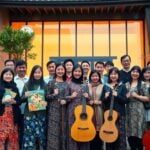Navigating the world of grants can be a daunting task, especially for those new to the process. The first step in securing funding is to thoroughly understand the specific requirements and guidelines set forth by the granting organization. Each grant has its own set of criteria, eligibility requirements, and application procedures.
It is crucial to read the grant announcement or request for proposals (RFP) carefully, as this document outlines what the funders are looking for in a project. Pay close attention to details such as the funding amount available, the types of projects they support, and any restrictions on how the funds can be used. Moreover, understanding the evaluation criteria is essential.
Funders often provide a rubric or a list of priorities that they will use to assess proposals. Familiarizing yourself with these criteria allows you to tailor your project to align with the funder’s goals. For instance, if a grant prioritizes community impact, you should emphasize how your project will benefit the community in your proposal.
Additionally, be aware of submission deadlines and formatting requirements, as failing to adhere to these can result in disqualification. By taking the time to comprehend the grant requirements fully, you position yourself for a more successful application process.
Conducting thorough research and needs assessment
Identifying the Problem or Need
Once you have a clear understanding of the grant requirements, the next step is to conduct thorough research and a needs assessment. This process involves identifying the specific problem or need that your project aims to address. Start by gathering data and statistics related to your area of focus, including demographic information, existing resources, and gaps in services.
Gathering Insights from Stakeholders and Similar Projects
Engaging with stakeholders through surveys, interviews, or focus groups can provide valuable insights into the community’s needs and perspectives. Additionally, researching similar projects that have received funding in the past can provide inspiration and help you identify best practices. Analyzing successful proposals can help you understand what types of projects are being funded and how they align with the funders’ priorities.
Positioning Your Project as a Unique Solution
By conducting thorough research, you can position your project as a unique solution to an identified need. This research not only strengthens your understanding of the landscape but also allows you to demonstrate a clear understanding of both the problem and the context in which it exists. This enhances your proposal’s credibility and relevance, making it more competitive for funding.
Developing a clear and compelling project plan
With a solid understanding of the needs and context, you can now develop a clear and compelling project plan. This plan should outline your project’s objectives, activities, and expected outcomes. Start by defining specific, measurable goals that align with the funder’s priorities.
For example, if your project aims to improve literacy rates among children, specify how many children you intend to reach and what methods you will use to achieve this goal. In addition to outlining objectives, it is essential to detail the activities that will be undertaken to meet these goals. A well-structured timeline can help illustrate how these activities will unfold over the course of the project.
Consider using a Gantt chart or similar tool to visually represent your timeline. Furthermore, be sure to include information about who will be involved in implementing the project. Highlighting the qualifications and experience of your team members can instill confidence in funders regarding your project’s feasibility.
A well-thought-out project plan not only serves as a roadmap for implementation but also demonstrates to funders that you have carefully considered how to achieve your objectives.
Creating a realistic budget and timeline
A realistic budget and timeline are critical components of any grant proposal. The budget should provide a detailed breakdown of all anticipated expenses associated with your project. This includes direct costs such as personnel salaries, materials, and equipment, as well as indirect costs like administrative expenses.
Be transparent about how you arrived at these figures; providing quotes or estimates can lend credibility to your budget. In addition to outlining costs, it is important to justify each expense in relation to your project’s goals. Funders want to see that their money will be used effectively and efficiently.
For instance, if you are requesting funds for training sessions, explain how these sessions will contribute to achieving your project’s objectives. Alongside your budget, include a timeline that outlines when each activity will take place and when funds will be needed. This helps funders understand the flow of your project and ensures that you have considered all aspects of implementation.
Writing a persuasive and well-organized proposal
The proposal itself is where all your hard work comes together, and writing it in a persuasive and well-organized manner is crucial for success. Start with a strong executive summary that encapsulates your project’s essence in a few paragraphs. This section should grab the reader’s attention and provide a snapshot of what you aim to achieve.
As you move through the proposal, ensure that each section flows logically from one to the next. Use headings and subheadings to guide readers through your narrative. Be clear and concise in your writing; avoid jargon or overly technical language that may alienate reviewers who are not experts in your field.
Incorporate storytelling elements where appropriate—real-world examples or testimonials can make your proposal more relatable and impactful. Finally, make sure to address any specific questions or prompts outlined in the grant guidelines; this demonstrates that you have followed instructions carefully.
Reviewing and revising the proposal before submission
Before hitting that submit button, take the time to review and revise your proposal thoroughly. This step is often overlooked but is critical for ensuring clarity and professionalism. Start by reading through your proposal multiple times; each read-through should focus on different aspects—content accuracy, clarity of language, adherence to guidelines, and overall flow.
Consider seeking feedback from colleagues or mentors who have experience with grant writing. Fresh eyes can catch errors or inconsistencies that you may have missed. Additionally, ensure that all required documents are included with your submission; double-check formatting requirements as well.
If possible, allow some time between writing and reviewing so that you can approach your proposal with a fresh perspective. A polished proposal not only reflects well on you as an applicant but also increases your chances of securing funding. In conclusion, successfully navigating the grant application process requires careful planning, thorough research, and meticulous attention to detail.
By understanding grant requirements, conducting needs assessments, developing clear project plans, creating realistic budgets, writing persuasive proposals, and reviewing thoroughly before submission, applicants can significantly enhance their chances of success in securing funding for their projects. With dedication and strategic effort, individuals can turn their innovative ideas into reality through grants and funding opportunities.


























